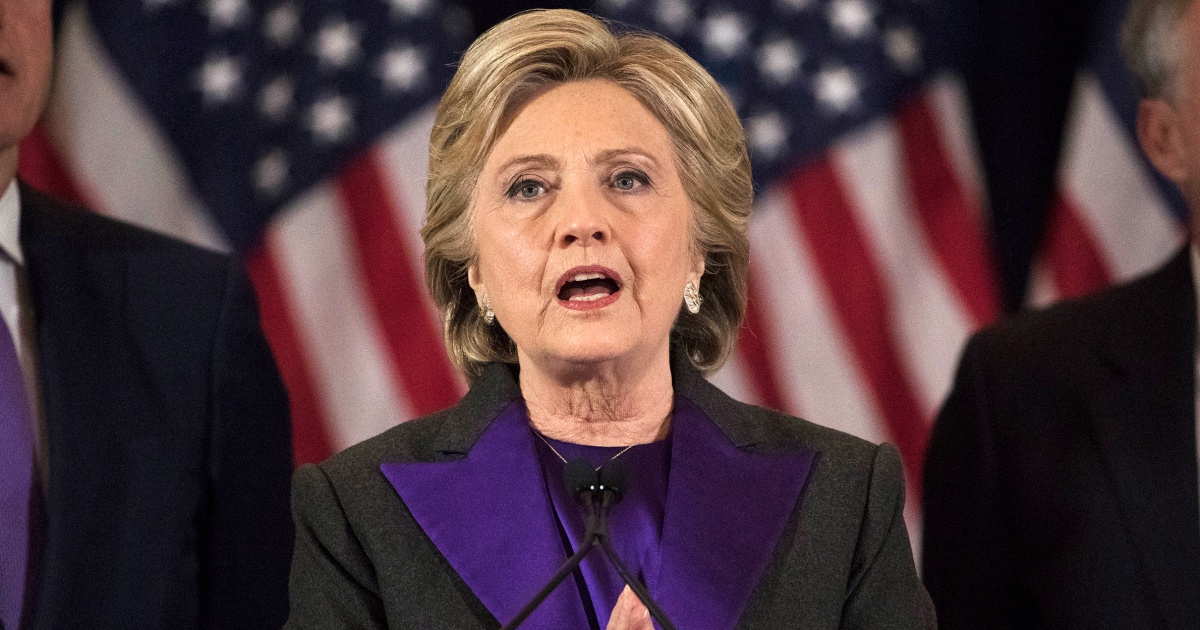With the countdown to the midterms ticking toward its conclusion, America awaits the electoral fallout from the Big Lie: Donald Trump’s baseless conspiracy theories about widespread fraud in the 2020 election. The nation heads into Election Day with millions of GOP voters primed to distrust election results. For a country where faith in elections forms the cornerstone of democracy, it’s a terrifying situation.
But it’s even worse than that.
These actions, while certainly not as dramatic or as immediately damaging as the events leading to Jan. 6 (and today), helped bring us to our current situation.
Trump’s mendacity is arguably the Second Big Lie. Four years earlier, the Hillary Clinton campaign and leading Democrats refused to acknowledge the outcome of the 2016 election, by claiming Donald Trump was not a legitimate president. These actions, while certainly not as dramatic or as immediately damaging as the events leading to Jan. 6 (and today), helped bring us to our current situation.
“He lost the election and he was put into office because the Russians interfered on his behalf,” ex-President Jimmy Carter said in 2019, continuing to deny Trump’s victory three years after the election.
“He knows he’s an illegitimate president,” said Clinton, also three years later. She repeated this sentiment in 2020, telling The Atlantic the election “was not on the level,” and again when she called Trump’s win illegitimate. She piled on to this by saying, “You can run the best campaign, you can even become the nominee, and you can have the election stolen from you,” clearly referring to how she saw her 2016 campaign.
Congressman and civil rights icon John Lewis went even further in 2017, saying: “I don’t see Trump as a legitimate president. … I think the Russians participated in helping this man get elected.”
Of course, Russia did meddle in the election via Facebook ads and cyberattacks, among other things, but as the Senate Intelligence Committee’s investigation of Russian interference concluded, there was no “evidence that vote tallies were manipulated.”
The uncomfortable reality is that Trump became president because 62 million Americans elected him. Denying this helped lead us to today, where a 2016 Economist/YouGov poll found that half of Clinton voters thought a foreign power tampered with voting results, while over 50%, and at times as much as 75%, of Republicans said they think Joe Biden was fraudulently elected, according to a Washington Post analysis.
These two phenomena are inextricably linked: The 2016 election denial paved the way for Trump’s lies four years later. It’s far past time we acknowledged this.
The refusal to recognize Trump’s victory began early, when Clinton declined to give a concession speech on election night, waiting until the next morning, instead. (In contrast Trump waited until after the Capitol riot, months later, to acknowledge reality in a speech that did not ever actually mention Biden by name.) By then, her campaign was already formulating a strategy to cast doubt on Trump’s legitimacy.
Clinton was not shy in offloading responsibility for her catastrophic loss. She blamed Bernie Sanders, Jill Stein and the media. She blamed racism, and she blamed Barack Obama; she blamed sexism while also blaming women. But all that was secondary to the overarching narrative: that Trump was an “illegitimate president.”
According to reporters Jonathan Allen and Amie Parnes, the “strategy had been set within twenty-four hours of her concession speech” by campaign manager Robby Mook and chairman John Podesta, who met to “engineer the case that the election wasn’t entirely on the up-and-up” and “went over the script they would pitch to the press and the public. Already, Russian hacking was the centerpiece of the argument.”
And that argument never really went away.
In 2016, Reps. Nancy Pelosi and Adam Schiff of California, the House minority leader and the ranking Democrat on the House Intelligence Committee, called on Congress to investigate Russia’s “hacking” of the election. The next year, Rep. Barbara Lee, D-Calif., argued Michigan’s votes should be discarded, Sen. Bernie Sanders, I-Vt., refused to say whether Trump was a legitimate president, and Sen. Dianne Feinstein, D-Calif., said she believed Russia “altered the outcome” of the election. Meanwhile, Rep. Jerry Nadler, D-N.Y., tried to have it both ways, calling Trump “legally elected” while simultaneously claiming his election was “illegitimate.” Two years after that, Democrats were still using the same rhetoric, with Senate Minority Leader Chuck Schumer, D-N.Y., saying Russia “hacked our elections.”
Share your story or advertise with us: Whatsapp: +2347068606071 Email: info@newspotng.com



















